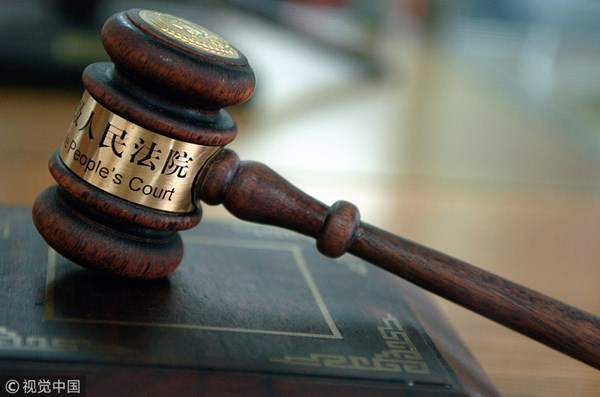Prison term reduction faces tougher scrutiny

[Photo/VCG]
Commutation can only be applied to those who have shown sincere remorse
The approval process for prisoners' sentence commutation and parole in China will be much stricter under a new guideline as the country seeks to fight judicial corruption and prevent abuse of the system by inmates seeking to avoid serving their full prison terms.
The 20-article guideline was issued by the Supreme People's Court, the Supreme People's Procuratorate, and the ministries of public security and justice on Wednesday.
It stresses that commutation and parole can only be applied to inmates who have shown sincere remorse for their crimes and have corrected their behavior.
It orders prisons to be more prudent in helping prisoners submit applications for parole or sentence reduction, and calls for prosecutors to fulfill their supervisory duties during the process.
While clarifying that courts should handle such applications through case hearings instead of simply reading documents provided by prisons, the guideline stipulates that judges, before making a decision regarding parole or commutation, should locate correctional officers and other inmates who can serve as witnesses to double check whether an applicant has exhibited good behavior and whether the evidence he or she provided was obtained properly.
Clues that help crack other cases or the reporting of new offenses of other inmates will be deemed invalid if they are found to have been gained by applicants through bribery, violence, threats or other improper means.
With some inmates having applied for commutation or parole because of their inventions and technological innovation in recent years, the guideline urges the authorities to figure out whether applicants have relevant study backgrounds and professional skills.
If applicants cannot explain the inventive principles and processes they used, their applications will not be identified as meritorious service and they will not be given a reduced sentence or parole, it says.
The guideline also says that materials proving medical reasons for commutation or parole must be reviewed strictly.
Luo Zhiyong, deputy chief judge of the Supreme People's Court's trial supervision tribunal, said the guideline will encourage inmates to rehabilitate themselves and ensure that those given parole or a reduction in their sentences will cause no social harm.
"It's also to prevent irregularities in the application of parole or commutation and avoid courts dealing with such cases superficially, which in some incidents led to fake materials being submitted during the process," he added.
In one high-profile case, Guo Wensi, from Beijing, was found to have improperly received nine commutations after he was sentenced to life imprisonment in 2005 for killing his girlfriend. He was freed in 2019.
He triggered a public outcry in March last year when he caused one death and two injuries during a COVID-19 outbreak in the capital. Guo refused to wear a mask in a supermarket in Beijing after an elderly man reminded him to do so, and Guo assaulted him following an argument, also injuring two other people who attempted to stop him. The elderly man died after being sent to hospital.
Guo was sentenced to death for intentional injury by a Beijing court early this year.
His multiple commutations were the result of duty crimes by a few prison and court officials across the city. The officials used their work positions to illegally help Guo reduce his sentences after accepting "benefits" from Guo's family members and others.
Thirteen people involved in Guo's improper commutations, including prison and court officials, were given prison sentences early this year, with some ordered to pay fines ranging from 140,000 yuan to 400,000 yuan ($22,000 to $63,000) for bribery or malpractice by the Xicheng District People's Court.
Luo said, "Strictly handling such cases is not only a duty for judges to uphold justice, but also to help respond to public concerns and maintain social stability."
Li Jing, an official from the Ministry of Justice, said it will upgrade a system that shares information on inmates with prosecutors and judges.







